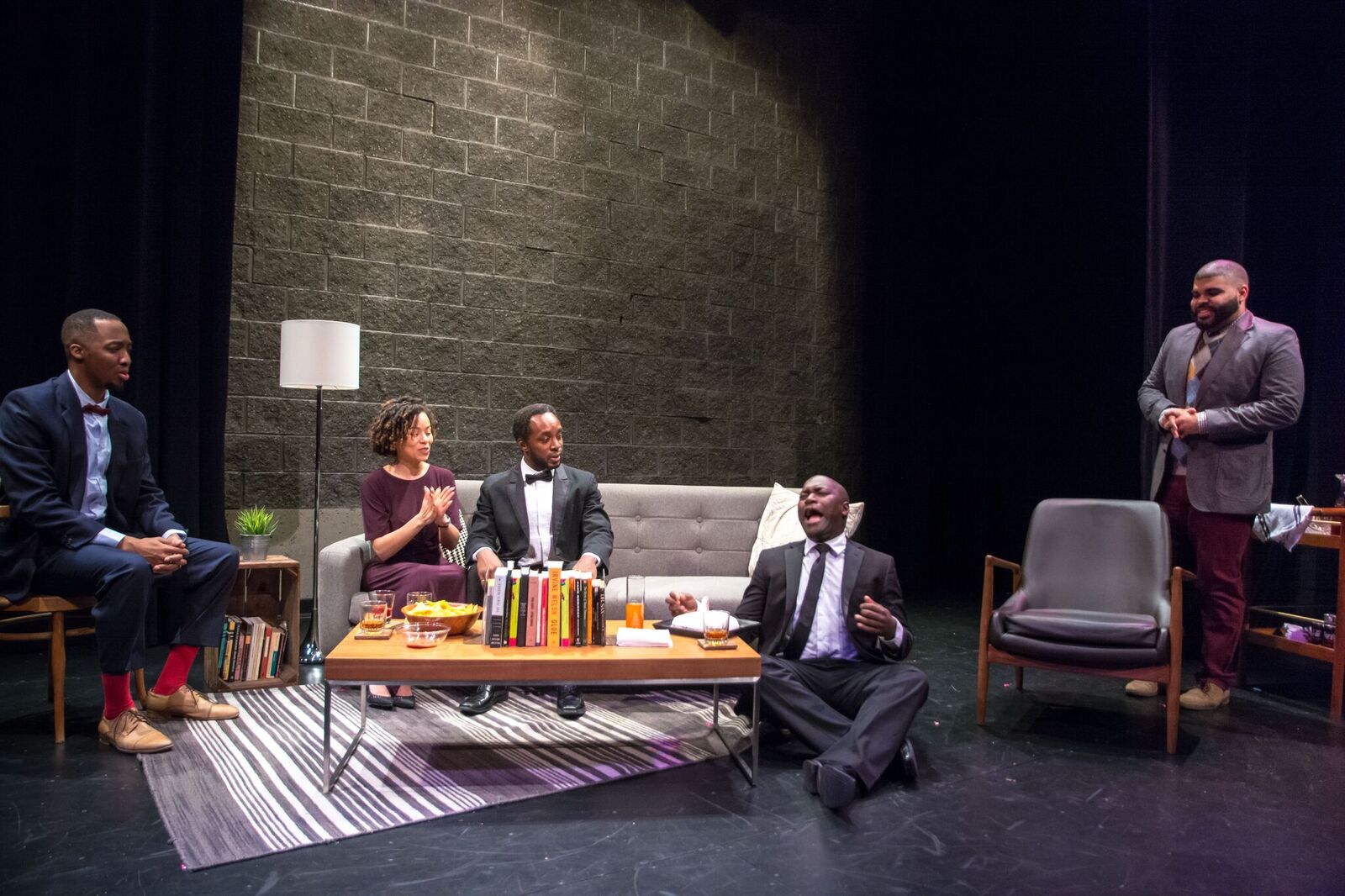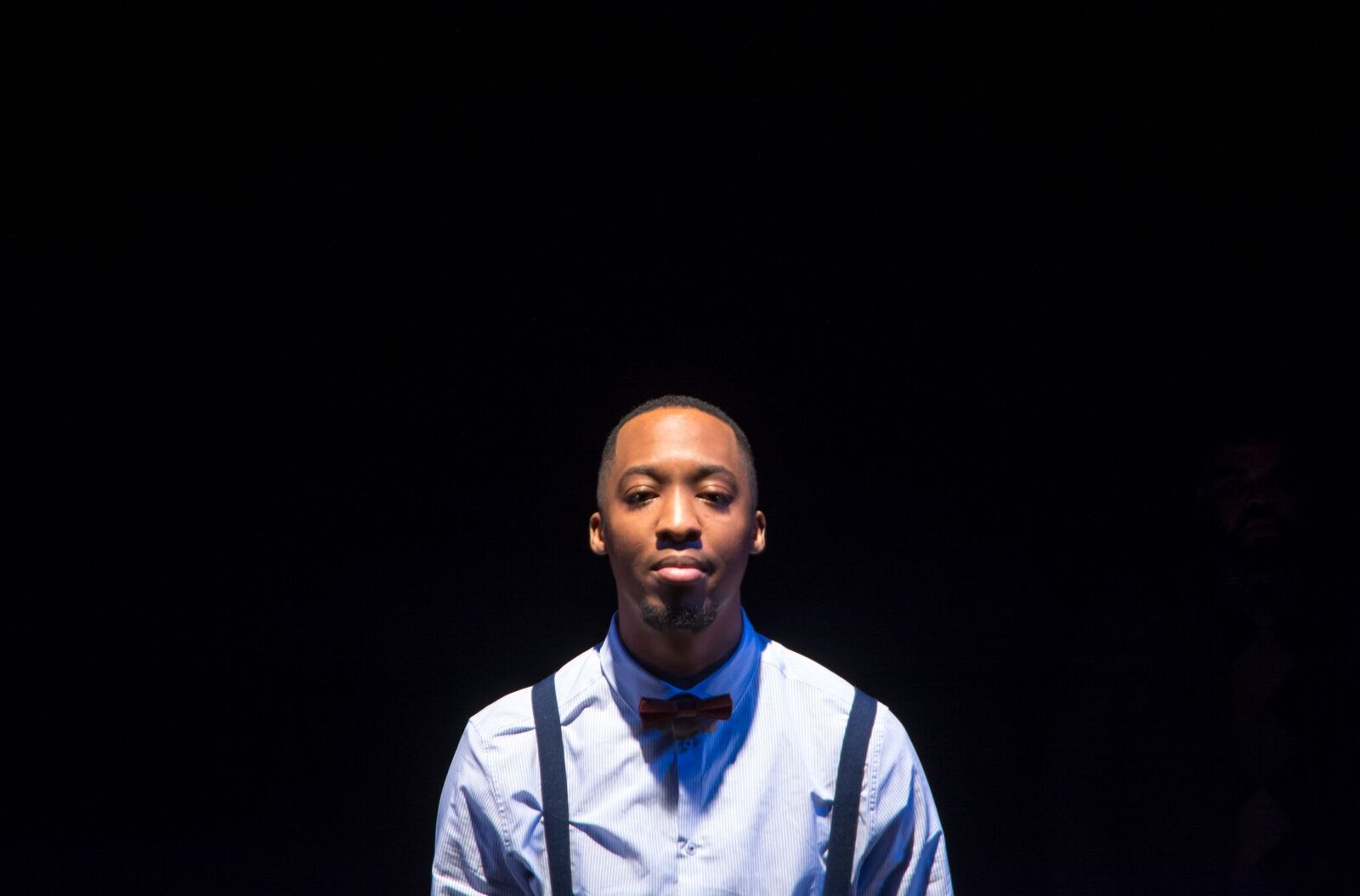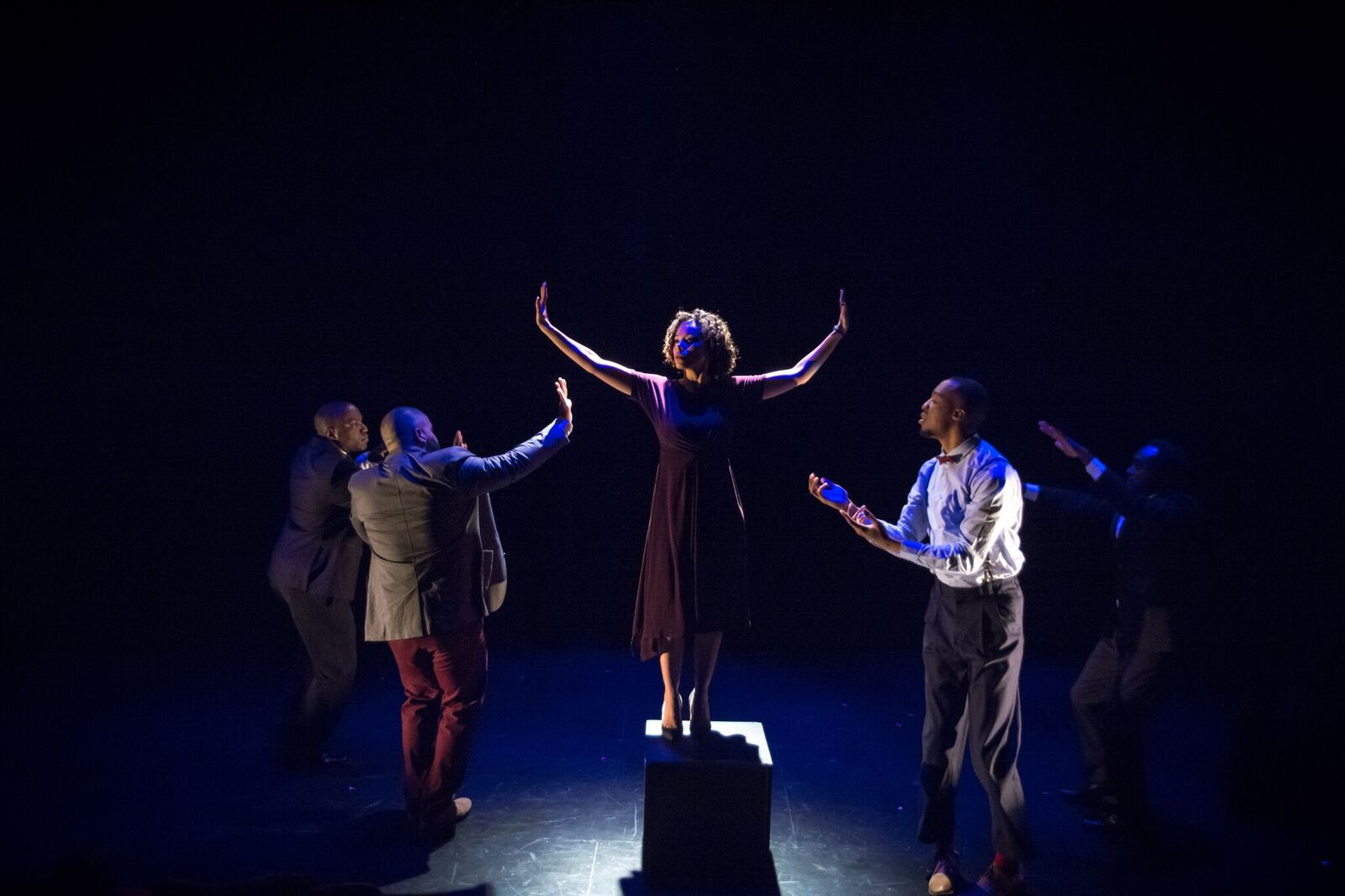
“The Shipment” has returned to Vancouver after sweeping the Jessie’s for its debut run a few years ago. The play is the proud work of playwright Young Jean Lee and has toured North America since 2009. Ten years on it still remains relevant and strikes a chord in today’s political climate. It is a three-part multi-genre project. Some describe it as a collection of sketches, others as a variety show. To me “The Shipment” employs an array of formats to represent the scattered and many times conflicting perceptions that white people hold about black people.
Young Jean Lee uses utmost creativity to tip the stage and to throw off traditionally white audiences. She redirects the spotlight back onto the audience, and sometimes quite literally so – for example when she has her black cast scrutinize and study its white audience for a long moment that borders on uncomfortable. Lee plays with our subconscious definition of what we consider a theatre audience to be. Although the play is performed by a black cast, it does not tell the stories of black people. Instead it breathes life into the stereotypes that many white people believe, act on, and build laws and policies upon.

This play is funny and extremely creative. For people of colour in the audience, it feels a bit like a battleground between the actors of colour and their white audience. The tension in the room builds and rises, and you can hear a lot of “thinking” going on in the audience. There are some awkward laughs and some woke laughs that are trying a bit too hard. This is a tough play to be a white audience member at, which is unusual but also the point. Think of all the times people of colour have been forced to sit through pieces that make them uncomfortable.
The play right off the bat, through Omari Newton’s portrayal of a typical black stand up comedian that white audiences historically appreciate, questions what white audiences expect when they come to an all black production. They maybe expect to see pain, trauma, the injustice of history, learn about how much privilege they have and how much it hurt other people (a dark humblebrag). Or maybe they expect to get an inside look into black people’s lives, language, and culture. But never do they expect the camera to be sent pointing back towards them. Never do they expect to be under a microscope and looked at for their peculiarities, like everyone else. And never do white audiences expect to see black actors articulating anger in such baldly accusatory tones. Nor, on the other hand, do they expect to see audaciously playful black actors having a laugh at their expense.
Lee breaks the unspoken rule of English language theatre – that the ideal audience is a white English speaking audience.
In the crossfire between the black actors and the white audience, the people of colour in the audience may feel a bit left out. This play is not directed at us but if you count this crossfire as part of the show, then people of colour are able to enjoy an entirely different show altogether. They get to watch a play about a black crew challenging a white audience and seeing the white audience transform, squirm, think, and look inwards in real time. It’s a whole ‘nother layer of performance. I’d actually reallly like to hear what white reviewers made of this show. From a few reviews out there, there seems to be a variety of opinions. One review is defensive, another questions Lee’s authority to make a “black play” (quick aside: people of colour don’t have a problem with this because it is clear Lee has consulted, collaborated with, and integrated the thoughts and opinions of black artists into every detail of the play- this is not appropriation, it is simply a common understanding of white supremacy through shared experiences of oppression). Yet another review is totally cool with it because they’re so totally woke!
But I wonder if there ever will be an honest review from the white perspective. A review that myself and perhaps the creators and cast of the show wished they could see. One that confesses that the viewer has, or had at some point, held these seemingly harmless stereotypes and that seeing them on stage like this made them realise just how ridiculous they are. That the play made them recognise that yes, they had indeed come prepared to see a black play but were shocked to see a white play instead. That white people too have a distinct culture that can be judged, mocked, and described with great detail. That they’ve always been so used to being the default audience that it was revelatory to come face to face with the privilege of having all theatre made for them. That it was weird being exposed and under the microscope. And that it made them realise that if they held a lot of these ridiculous opinions now or in the past then maybe there is inner work to be done.….I wonder.
The secret is out – people of colour know how most white people think – a lot of it is social conditioning by a system that works in white people’s favour, but the question at hand is – now that everyone knows, what will they do about it? When it was a secret it was easy to shy away from. But now, under this giant microscope of op-eds and social media, everyone, including white people, are wondering what white people will do about it. This is the sweet spot that “The Shipment” takes us to.

All the actors are wonderful. Each performer brings a special spark to the stage. Omari Newton opens as the offensive stand up comedian. He is the only person allowed to make fun of white people in their presence and not suffer any serious consequences for it. We then move on to a robotic presentation of a rags-to-rapper story about an innocent boy from the hood, played by the elegant Andrew Creightney, who is forced to sell drugs and ends up in show business via prison. This is a story that has been glamorised to sell millions of records to white suburban kids since the birth of gangster rap. The oversimplified storytelling in this act is stripped of any emotions. It reminds you of a comic book and makes the story look infantile and tired. The message is clear: if this is what you think black people are like, you’re an idiot. Kiomi Pyke, Chris Francisque, and Adrian Neblett play key roles in this story and add their flair to every character they roll through to support it, and then end with a very moving song.
The final part of the play is by far the most elaborate and most subtle. We’re invited into Thomas’ apartment, played by Newton again, for a little dinner party. We learn about Thomas and his neurotic friends who seem very concerned with silly things like where their lives are going, how they’ve cut out x,y, and z from their diets, how passive-aggressive their relationships are, how lonely they are, and how they need to drink all the time. Pyke, Francisque and Neblett shine in this piece again and create three unforgettable characters who are so real they will remind you of people that you know (I promise). I won’t spoil anything here but we are presented with a twist at the end of this piece that many might see coming while others might be taken by complete surprise because the cast is that good! The set is intricate and creates three distinct worlds for us, each one fitting of its respective piece. For the last piece, a living room is reconstructed so lovingly that it creates the a womblike cosiness. The set and warm lighting give the entire show a safe and contained feeling. The music on the show works well too to create atmosphere and scene changes, especially in the second piece.

“The Shipment” is extremely entertaining. I found the stand-up piece at the start a bit jarring but I realise now that it wasn’t meant for me, it was meant to shake up white audiences. The second piece was beautiful in its creativity and flowed like a stream. And the final piece had us laughing in fits and then turning around to question our reasoning. This is a play written by a very intelligent woman of colour and performed by a highly-skilled cast of black actors. For once we get to see a play that stars black people that isn’t about slavery and that doesn’t exploit the trauma of black folks. For once we see a black cast that is having a good time. A cast that is laughing and joking and poking fun at others. For once we see a black cast telling a story about white people.
Whether you are white or non-white, go and see “The Shipment” and tell us what you think!
Get your tickets here!
– Prachi Kamble
